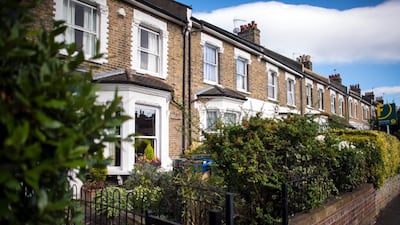Louise Candlish's new thriller, Our House, begins with a gripping premise. Fiona Lawso, 42, returns home from a break to find strangers moving into her house. Once she gets over the shock of the removal van, all she can think of is that her ex, Bram, with whom she still shares the house – the two of them having tried to do the right thing for their sons since the marriage broke up – has invited one of his down-on-his-luck mates to move in with them and neglected to tell her.
No, this is moving in as in all of Fiona and her family's possessions and furniture have been removed from the property, contracts have been exchanged and the money transferred, all overseen by solicitors and estate agents, and, as Fiona, will realise, she hasn't a legal leg to stand on.
Since Fiona's initial bemusement quickly turns to panic – especially when the couple moving into the house she's claiming as hers don't seem to recognise her – I assume Candlish was setting the scene for one epic case of gaslighting. Instead, what actually unfurls in the aftermath of this opening is a more traditional thriller, inasmuch as the narrative relies on the staples of the genre to gain momentum: adultery, the discovery of closely-guarded secrets, blackmail, and ultimately murder. From these recognisable elements though, Candlish builds a story with just enough twists and turns to not so much keep her reader on the edge of their seat, but rather completely pull it out from under them. Our House is a smart, original take on the "it's his word against hers" set-up. "That's what marriage is," a friend of Fiona's says wryly towards the end of the book.
"I wanted to write a Gone Girl for the property-obsessed," says Candlish, who's the author of 11 other novels – one of which, The Sudden Departure of the Frasers, was recently optioned for TV by the production company behind Sherlock. Since one spouse sets out to take advantage of the other, leaving havoc in their wake, Our House could certainly be described as a marriage thriller in the vein of Gillian Flynn's hugely successful international bestseller. But at both the story's heart, and that of the (central) crime that's perpetrated, is Fiona and Bram's elegant four-bedroom house with its beautiful magnolia tree in the front garden, a family home that could have been plucked
from the pages of a glossy property magazine.
Candlish gets all the clichés spot on, especially when it comes to the women of Trinity Avenue, the picture-perfect tree-lined street that sits at the heart of one of South London’s most sought-after neighbourhoods, not least because of the great local primary school. These women, “with their educated, entitled, post-feminist sensibilities,” attend yoga or Pilates classes in the morning, squeeze in a few hours of work (though their pride and joy is their family, and the family home), before their evening drink.
It’s a world in which someone who deigns to trim her fingernails with kitchen scissors, brushing the cuttings onto the floor, who turns the light switch off with her nose as she exits the kitchen, her hands full of drinks, is described as “spontaneous, playful, with a joie de vivre” envied by others. Pathetic, but perhaps not surprising given the favourite topics of conversation in the group are school applications and house prices, discussions of the latter little more than self-satisfied basking as they sit back and watch their money mounting up: “A familiar frisson of satisfaction sizzled between us: the only thing better than being a millionaire was being a millionaire without having lifted a finger.”
Without ever resorting to outright criticism, Candlish shines an unforgiving light on all this entitlement and excess. Despite the troubles in their own marriage, both Bram and Fiona spend a fair amount of time praising the parenting skills of the other, and expounding on how the priority of both of them is to put their children first. It all starts to ring very hollow after a while, not least because the way the narrative is structured – Fiona's side of the story mostly told through transcripts of recordings she's made for a popular podcast called The Victim, while Bram's appears in the form of an extended suicide note supposedly explaining everything – one quickly realises neither account can be considered truthful as each party has an agenda of their own. Our House is a spot-on study of middle-class greed, privilege, and the horrible smugness that comes from blindly assuming life should go one's way. It's sure to strike an uncomfortable chord with some, while leaving other readers even less favourably disposed towards a certain type of Londoner than before. As with all thrillers, it has its flimsy moments, but overall these were few and far between, and it was a clear cut above so many of the marriage thrillers we've been subjected to in recent years.
_____________________
Read more:
Juma Al Majid’s quest for universal knowledge brings the world’s treasures online
How Cleo Wade became known as the 'Oprah for millennials'
Nikesh Shukla on piecing together the immigrant experience in the UK
_____________________

